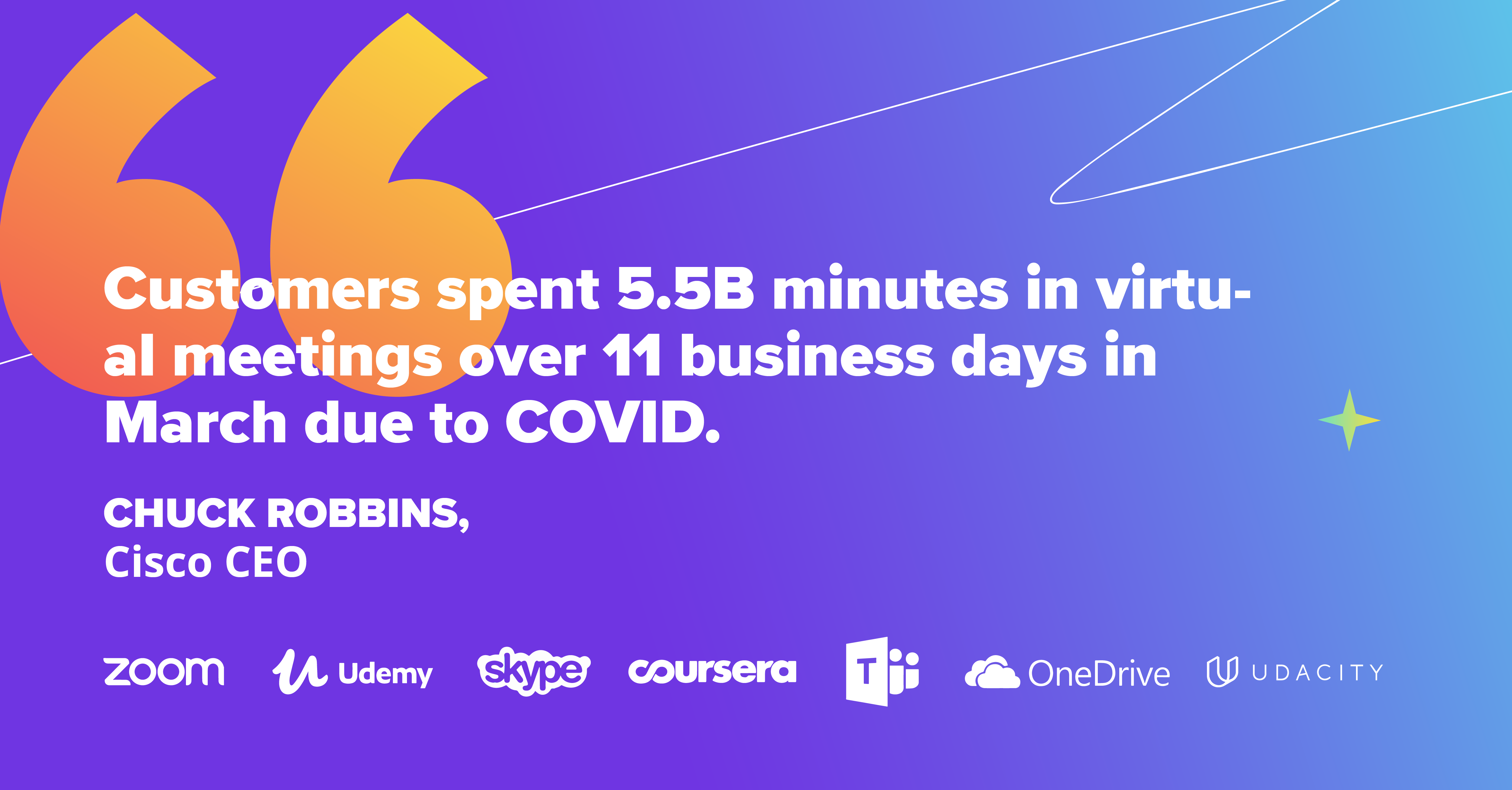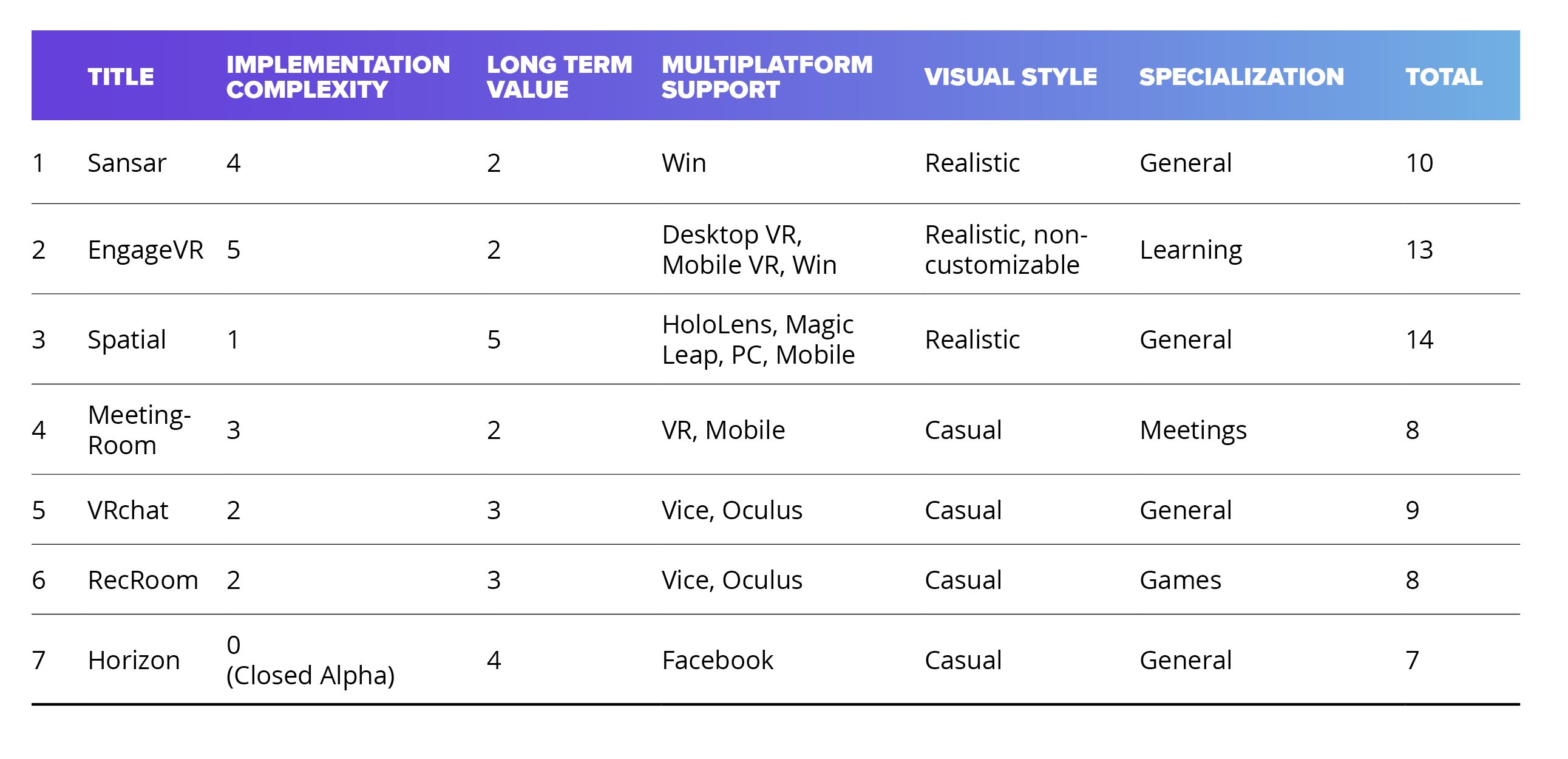Introduction
In the new COVID-19 pandemic reality, organizations have massively made a shift to remote collaborations to foster the digital resilience, manage operations effectively, and continuously create value.

After COVID-19, there will be more users needing AR and VR solutions to effectively set up a remote collaboration and deliver engaging experiences. Staying engaged for 4-6 hours online can be challenging, but there is technology that can deliver excellent content and help companies to not only survive, but also thrive in these uncertain times.
SoftServe sees a great opportunity in XR-based, device-agnostic collaboration platforms to fulfill the niche. The following review provides a response to the new norm.
Best collaboration platforms
Among 25+ off-the-shelf solutions for remote collaboration these are the most promising ones.
Sansar
Sansar is a VR-based social platform that lets users create 3D spaces for experience sharing (watching videos, playing games, conversations in VR). Each user has an avatar that includes speech-driven facial animations and emotion-driven body animations.
EngageVR
EngageVR is an education and corporate learning VR platform that hosts meetings, presentations, classes, and events with people across the world. You can host your virtual reality sessions live, or record and save sessions for others to attend later. It provides ample virtual objects, locations, and effects for a unique user experience.
Spatial
Spatial is a platform that turns the space around you into a shared augmented workplace. Users can collaborate, search, brainstorm, host workshops, and share the content as if they were in the same room.
MeetingRoom
MeetingRoom is a platform that offers virtual meeting rooms with collaboration and presentation tools, manipulated by participants to emulate real-life meetings.
VRchat
VRchat is a free-to-play multiplayer online virtual reality social platform. Players interact with each other as 3D avatars. It provides meeting spaces that let people socialize, weekly events, classes, games, performances for large crowds, and other virtual environments. It also supports full-body humanoid avatar tracking via HTC Vive Trackers.
RecRoom
RecRoom is a VR open space online game to interact with other players. It doesn't require VR headsets. The hub room consists of doors that lead to various games and user-generated rooms. Players can explore the space around them by using controller buttons to teleport a short distance, with little or no virtual reality sickness.
Horizon
Horizon is an interconnected world with VR Avatars to meet. The platform helps program user-created games and lets users discover communities, paint, form a team with other users. It also enables users to create their virtual worlds using a variety of virtual tools or visit other worlds created by users.
Benchmarking approach
The following table contains our rating criteria for this review. The following features and benefits were considered:
- Implementation complexity – a general complexity of application development (i.e. 2D, 3D or mixed), reusability, and platform openness (1-5, higher is better).
- Long-term value – a possible solution’s expandability, scalability, and platform novelty (1-5, higher is better).
- Multi-platform support – more platforms means more users. Theoretically, it is impossible to support all platforms, for example Oculus VR is not supported on Mac (1 point per each).
- Visual style – there are many unsolved technical issues for realistic avatars. Software vendors use tradeoffs of non-realistic simplified characters. It works well for games and educational apps, but for a business meeting platform it might not be acceptable. (+ 1 for realistic).
- Specialization – some of the platforms are pre-built for a specific use case, like meetings or learning. We give a general approach twice as many points in this study (general - 2, 1 - per spec).

*Note: We recommend using Spatial, a custom-built platform, as it has scored the most points in our evaluation. The main advantages of using this platform are expandability and scalability, as it supports Mixed Reality and has great potential in the near future.
Conclusions
Millions of VR devices have penetrated the market but VR headsets, mobile devices, and laptops are no longer innovative—providing minimal collaboration options in terms of content and user engagement.
This trend will eventually change as new user-friendly, lightweight form factors become available to consumers—unlocking technological opportunities that have previously been untapped. SoftServe’s Advanced Technology Center of Excellence is a global team helping to accelerate this evolution—for the marketplace and our clients. Let’s talk about where you are in your remote collaboration journey.

